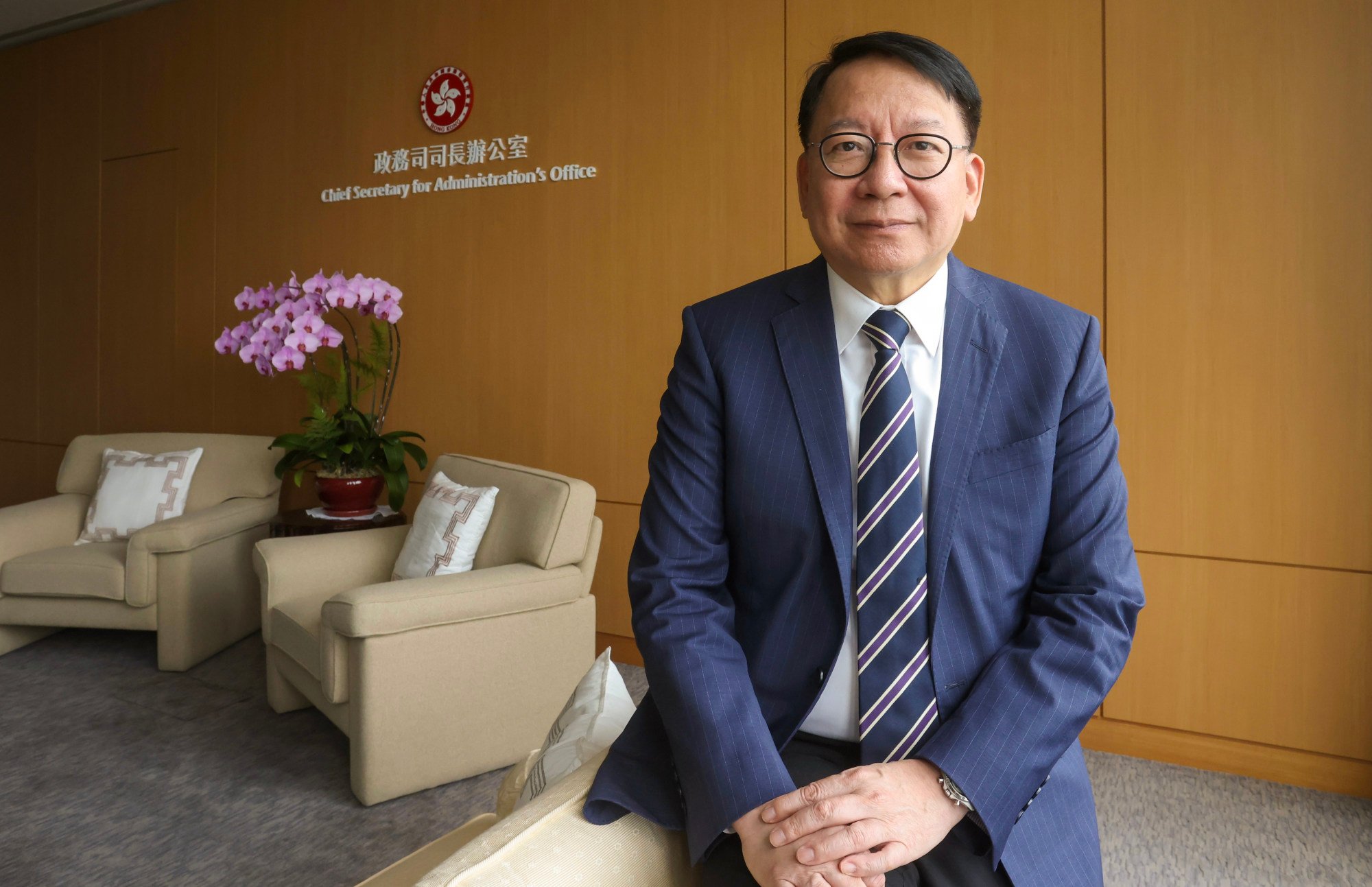
Mentorship scheme for underprivileged Hong Kong students in subdivided flats may be extended to those in public housing, No 2 official says
- Chief Secretary Eric Chan hails results of ‘Strive and Rise’ programme, under which secondary pupils from low-income households get cash, guidance and classes
- He also reveals plan to launch After School Care Service Pilot Scheme to allow parents in low-income households more time at work
A mentorship scheme designed to lift Hong Kong pupils living in subdivided flats out of poverty might be extended in its second year to cover those in public housing, the city’s No 2 official said on Saturday.
Launched in October, the government’s “Strive and Rise” programme has enrolled 2,779 underprivileged secondary school students living in the notoriously tiny homes in a bid to boost their social mobility.

Chief Secretary Eric Chan Kwok-ki on Saturday suggested that as current participants in the programme were due to join an “alumni club” later this year, the administration was looking to expand eligibility for the next enrolment round.
“The pupils don’t have to be living in subdivided flats, perhaps also those in public housing? We will consider all these,” he told a radio programme.
The scheme was well-funded after raising HK$140 million from the business and community sectors last year, Chan noted, and there was no concern about finding sufficient mentors to match a larger number of participants.
Hong Kong’s second combination hotel and youth hostel opens for applications
Chan said that having invited two groups of pupils to his official residence, he had personally observed changes in the students as they gained exposure outside their confined social circles through the programme.
“They’ve become active in asking questions, showing that they have gained confidence,” he said. “This is what the scheme is designed to do. Their self-confidence should not be constrained due to their family circumstances.”
Chan said only about 20 students had dropped out of the programme before its start mainly because of schedule conflicts, adding that some businesses had pledged to offer internships to participants.
Beijing has stressed the concept of common prosperity, under which social mobility should be enhanced to give more people opportunities to attain wealth and shape a development environment for everyone.
2 firms recruited to help Hong Kong youth working in Greater Bay Area: labour chief
To support families in need, Chan said, the government also planned to launch the After School Care Service Pilot Scheme in partnership with select primary schools and NGOs in the new academic year.
He added children in low-income families could join for free to allow parents more time at work, which could both encourage childbirth and free up labour.
“The scheme has many benefits. Besides freeing up time for parents, we can also make use of those two or three hours every day to teach students something,” Chan said, suggesting topics such as career planning and financial management.
About HK$90 million has been set aside for the scheme to benefit 3,000 pupils in the one-year pilot. Chan suggested the goal was to expand the scheme across the city to benefit all needy families.
With the current administration set to mark its first anniversary next month, Chan said his first year as the city’s No 2 official had been filled with excitement because he had been able to focus on policymaking and delivering results, instead of dealing with the fallout of the anti-government protests in 2019.
Sze Lai-shan, deputy director of the Society for Community Organisation which works with the city’s underprivileged, welcomed the proposed extension of the mentorship scheme, noting that pupils living in public housing also needed urgent support.
But she said increasing the programme quota to cover more poor students remained key, suggesting the number of participants be raised to at least 50,000 annually, as the city was home to more than 200,000 children living in poverty.
“If the annual quota is not increased, even those most deprived are not entirely covered by the scheme,” Sze said.
She also urged the authorities to increase the amount of financial help for students in the programme and require mentors to commit more time to their pupils.
Additional reporting by Fiona Sun

